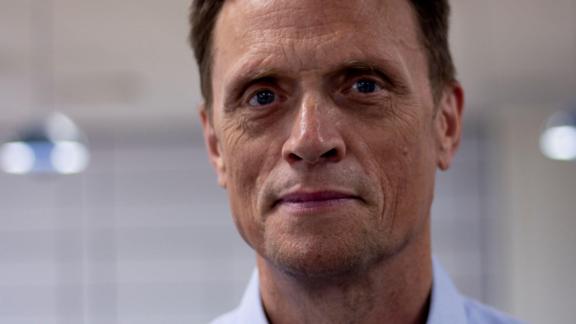Ministers need a long-term plan for the NHS, not a quick fix

The NHS crisis this winter was long predicted and the NHS had its plans, but the government failed in giving its support when it was needed. Matthew Taylor sends the message that to be effective, the NHS needs timely government support that backs local systems and allows long-term planning.
There is a much loved Two Ronnies sketch in which Ronnie Corbett’s Mastermind subject is “answering the question before last”. The government’s apparent commitment to the same strategy is proving less amusing for heath leaders and the communities they serve.
The challenges of this winter were long predicted. Indeed, NHS England started winter planning early last summer. Yet the government didn’t announce funding to help discharge medically fit patients from hospital beds until the autumn and didn’t start allocating some of the money until December, far too late to help preparations. As of today, much of the money hasn’t come through and won’t until late January. The reality is that the NHS needs four to six months to use this money most effectively.
The prime minister’s recent summit showed a welcome recognition by Downing Street of the scale of the challenges in health and care. After all, it is only six months since we had a PM prone to boast about a mythical 40 new hospitals while claiming that social care was “sorted”.
But to hold the summit in the midst of the crisis is of limited immediate value. It seems that Steve Barclay, the health secretary, is now willing to talk pay with the unions but after months of resistance their members are committed to damaging industrial action.
To ultimately have a health service that can improve outcomes without consuming an ever higher proportion of national wealth, big shifts are required
When I worked in Downing Street the head of the policy team had a screensaver that read ‘is it urgent or is it important?’. It’s a good challenge for central government because headline-grabbing problems in the health service all too often lead to responses that are both reactive and nationally prescribed. This can mean policies that are poorly designed or executed but it also reinforces a tendency in the NHS towards short-termism and a focus on the problems that are most obvious rather than the deeper issues that lie behind them.
Although the NHS is making important progress in areas ranging from cutting the longest waits to delivering vaccines and earlier cancer diagnosis, heart-rending daily stories of people waiting for or in ambulances or struggling to see a GP or dentist highlight the huge gap between the demand for NHS services and our capacity to meet that demand.
For some, this is all about money. It will take several years of catch-up after a decade of austerity that left the NHS with more than 100,000 vacancies going in to COVID-19 (now more than 130,000) and a huge capital backlog reflected in crumbling buildings and outdated equipment. For others, it is time to pull the NHS up by its roots, abandoning its core values of comprehensive care provided free on the basis of need.
Although it is less amenable to soundbites, there is another way of looking at the health service’s big challenges. To reverse the decline in service standards, to hope again for longer and healthier lives, to ultimately have a health service that can improve outcomes without consuming an ever higher proportion of national wealth, big shifts are required.
We must integrate services, building them around the needs and choices of patients while encouraging all of us to take more responsibility for our health
We need to move resources upstream from acute hospitals to community services, primary care and prevention. We must tackle the health inequalities that leave the residents of our affluent areas living ten or more years than those in deprived neighbourhoods. We must integrate services, building them around the needs and choices of patients while encouraging all of us to take more responsibility for our health. All of these shifts can be facilitated by advances in digital and biomedical technology.
But a characteristic of these structural challenges is that they require action that is both long term and adapted to local circumstances and needs. It was partly in recognition of this that the government legislated last year to create integrated care systems (ICSs) — bodies explicitly charged with working in partnership with local government and the voluntary sector and with focussing on improvements in population health. The thinking behind ICSs is sound and unlike many other NHS reorganisations their creation was supported by leaders across the service.
If local systems are given the resources, support and autonomy they need, then they will deliver better local integration and prevention
However, central government too often acts as if nothing has changed. The tendency towards short termism and central micro-management are then reinforced at times of crisis. This is why the ICS chair and former health secretary Patricia Hewitt has been commissioned by government to develop a different, more devolved and collaborative, model of accountability and regulation. Such an inquiry might seem far detached from today’s images of overwhelmed emergency departments, but if local systems are given the resources, support and autonomy they need, then they will deliver better local integration and prevention that will help ensure the NHS enters next winter and beyond in a more resilient state than this.
The problem with a crisis is often not just its direct consequences but the reactions it leads to. As always, the NHS will get through this winter – albeit with great hardship among patients, families and staff. We welcome government help as better late than never. But if we want to start addressing the next question not the last one, we need to let the NHS and its partners think long term and think local.
Matthew Taylor is chief executive of the NHS Confederation. You can follow Matthew on Twitter @FRSAMatthew
This first appeared in The Times Red Box.



